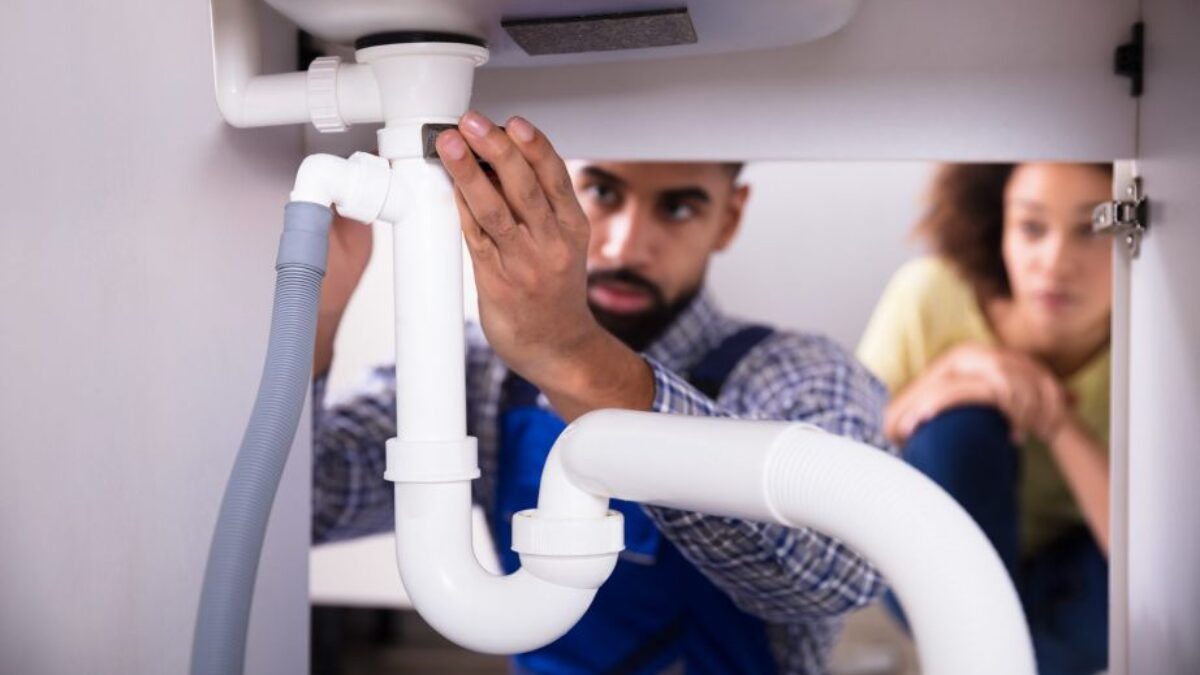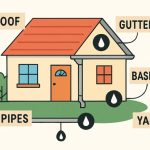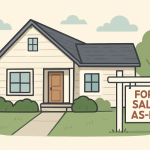Let’s be honest—drain issues are nobody’s favorite topic. But if you own or manage a commercial property, it’s something you can’t afford to ignore. Sewer problems can sneak up on you and when they do, they bring disruption, mess, and sometimes even a full-blown shutdown. Knowing the signs early can save time, money, and a lot of hassle. So let’s cut the fluff and get into what really matters: spotting the signs before things get ugly.
Slow Drains Are Your First Red Flag
If sinks, floor drains, or toilets are draining slowly, don’t write it off as “just a small clog.” In a commercial building, slow drains can mean there’s a bigger issue brewing in the main sewer line. The longer you wait, the worse it gets.
Watch out for:
- Water pooling around floor drains
- Sinks that take forever to empty
- Toilets that don’t flush properly or take multiple tries
These may seem like small annoyances, but they’re often the first signs of a backup in progress.
Bad Smells Mean Bad News
Unpleasant odors are more than just embarrassing. They can be a sign of trapped waste, broken vents, or clogged sewer lines. If you’re getting complaints about a foul smell in restrooms, kitchens, or utility areas, it’s time to take action.If you notice persistent clogs or unpleasant odors emanating from your drains, it might be time to consider professional intervention. Ignoring these signs can lead to more severe plumbing issues, potentially disrupting your business operations. Fortunately, trusted Portland Oregon plumbers are here to provide expert solutions tailored to your needs. Their comprehensive services ensure that your commercial sewer and drain systems function smoothly, preventing costly repairs and downtime. By addressing these issues promptly, you can maintain a clean and efficient environment, safeguarding your business’s reputation and ensuring the comfort of your clients and employees.
You might smell:
- Rotten eggs (indicates sewer gas)
- Musty, damp odors (possible mold from hidden leaks)
- Strong chemical smells (could suggest blockage or trapped cleaning agents)
Smells don’t fix themselves. They get worse—and fast.
Frequent Backups or Overflows
A single overflow might be manageable. But frequent or recurring issues? That’s a flashing neon sign telling you to get help.
Backups can damage flooring, create slip hazards, and even lead to mold growth. And if a customer or employee gets hurt? That’s a legal risk you don’t want.
Don’t ignore:
- Restrooms with repeated clogging
- Kitchen drains that overflow during busy times
- Flooding near sewer cleanouts
If it happens more than once, stop reaching for a plunger. Call in professionals.
Gurgling Sounds in Drains
Gurgling is your plumbing system talking—and it’s usually not saying anything good. These noises can indicate trapped air from a blockage or improper ventilation.
You might hear:
- Bubbling in the sink when the toilet flushes
- Gurgling in floor drains after heavy water use
- Loud draining noises in quiet rooms
It might not seem urgent, but gurgling often comes right before more serious problems.
Lush Green Patches on the Lawn
Got oddly green, thick patches of grass outside your building? Don’t celebrate your new landscaping skills just yet. That lush growth might mean a sewer line is leaking underground.
Leaking sewage acts as fertilizer. But it also means contaminants are seeping into the soil. That’s not just a plumbing issue—it could become an environmental and health problem.
Pest Problems That Just Won’t Quit
Rats, roaches, and drain flies love warm, moist environments. A damaged or clogged sewer system gives them exactly that.
If you’ve had a spike in pest activity despite regular pest control, your sewer lines might be the real culprit. Fixing the pipes can cut off the pests at the source.
Mysterious Water Damage
Ceiling stains, warped flooring, or mold patches with no obvious source? Sometimes the problem is in the pipes behind the walls or under the floor.
Sewer leaks can cause slow, long-term water damage that’s expensive to repair if left too long. When water damage appears without a clear reason, hidden sewer line issues could be to blame.
Old Plumbing That Hasn’t Been Inspected
Not every sign is dramatic. Sometimes, it’s just a matter of time. If your building is 20+ years old and the plumbing hasn’t been inspected recently, you’re rolling the dice.
Commercial sewer drain cleaning services aren’t just for emergencies. They’re preventive. Scheduling routine cleanings can help avoid expensive, business-halting problems down the line.
When Is It Urgent, and When Can It Wait?
Knowing what’s urgent versus what can be scheduled is key.
Act Immediately If:
- Multiple drains are slow or backing up
- You smell sewer gas indoors
- There’s standing water or overflow
- You hear loud gurgling or bubbling sounds
Schedule Soon If:
- You notice a slight odor but no visible issues
- One drain is slow, but others are fine
- There are minor pest problems with no other signs
If in doubt, it’s better to err on the side of caution.
Final Thoughts
Commercial sewer issues don’t fix themselves. They quietly get worse until they explode into major disruptions. Whether you’re dealing with minor signs or full-blown symptoms, knowing when to call for help is crucial.
Stay ahead of the mess. If you’ve noticed any of the signs above, it might be time to look into professional commercial sewer drain cleaning services. You’ll protect your property, your customers, and your peace of mind.
If you notice persistent clogs or slow drains, it might be time to consider professional help. Understanding the role of a plumber can be crucial in these situations. What Does a Plumber Do? They are skilled in diagnosing and resolving issues that go beyond simple blockages, ensuring your commercial sewer system functions efficiently. From using specialized tools to clear stubborn clogs to inspecting pipes for potential damage, plumbers provide essential services that maintain the health of your drainage system. Regular maintenance and timely intervention can prevent costly repairs and keep your business running smoothly.






